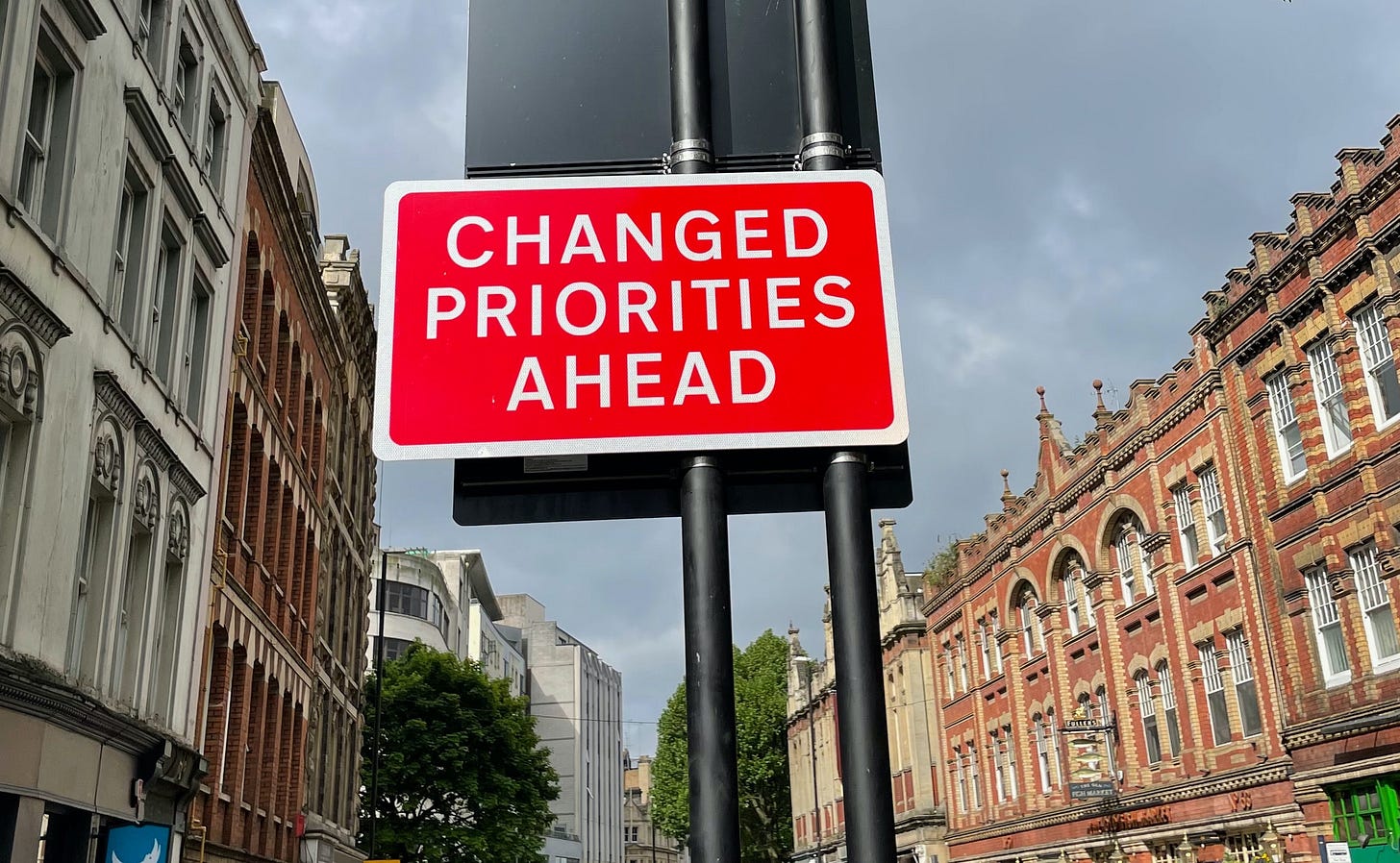I haven’t written in the past few days. I’m sorry about this. I recently landed a new job. Has the job process kept me too busy to write a post?
No.
In fact, I am suddenly left with more free time. I don’t have to focus on the larger commitment of job hunting like I was. So how come I stopped writing the last few days?
Has this ever happened to you?
A commitment suddenly went on pause even though you have more time and energy to dedicate to it?
What’s going on?
This is an exercise in listening to my mind.
The moment I accepted the job…
…my priorities changed.
After checking in with a friend, I concluded I’m re-negotiating my priorities. These are priorities on time, schedule, energy, and importance to what I’ve been working on for the past few days.
You and I actually re-negotiate our priorities all the time. The world changes fast, and we need to continually decide what remains important. What climbs higher and drops lower on the commitment list?
Here are my 3 steps to navigate a personal re-negotiation with your priorities:
1. Consciously agree to re-negotiate your priorities.
When your landscape changes because of a new opportunity, the first thing you may be tempted to do is hold tightly to your previous commitments. But this is not acknowledging that your circumstances have changed.
Get a sheet of paper and write down “I’m renegotiating my priorities.”
This allows you to move out of denial and into acceptance. You are having a conversation with yourself. You begin listening to yourself. What do you need? Do things need to change? You may not even change anything at the end, but the conversation needs to be held.
If you remain in denial, you remain in process - not knowing which commitments to get done and which ones to drop. This leaves to a mindblock where you may not complete anything. Everything remains half done. (I have written a few articles, but none of them are complete. I”m guilty of this.)
2. Commit to your agreement for the day.
Once you acknowledge you are re-negotiate your priorities, the next temptation to re-negotiate the day you already living today. But this is the one thing you have stabilizing you. Take “today” off the table for re-negotiation. The following day is when you will start your new priority list.
This gives you permission to keep moving forward with the day. If you drop the today’s commitments, you will likely make decision on impulse and not on reason.
Take therefore no thought for the morrow: for the morrow shall take thought for the things of itself. Sufficient unto the day is the evil thereof. Matthew 6:34 KJV
Do not reactively change today in response to tomorrow. Today already has its own trouble. This is why it’
s wise to choose to sleep on big decisions like buying a new car. A new car is adding new commit you are adding to the present day. Choosing to set that priority change to the next day allows you the space to reason well.
3. Re-negotiate for the great over the good.
“Focus isn’t saying “Yes” to a great idea; focus is saying “No” every other good idea that comes your way” was said by Steve Jobs.
So make yourself an offer you wouldn’t refuse!
You want to aim for the greatest 20% of priorities rather the the 80% of good ideas. Listen and focus attention towards your betterment. Remember the Matthew principle.
Whoever has will be given more, and they will have an abundance. Whoever does not have, even what they have will be taken from them. Matthew 13:12 NIV
If you don’t take massive ownership with yourself, you will lose what you already have. You may have a healthy body today, but in 30 years if you don’t exercise, you’ll have lost even what you have. Economist even concur with the Matthew principle.
What is going to matter 10 years down the line if you hit this top 20% hard? If you give too much to the 80% of other good things, how will this pull from your resources?
Let these questions guide your re-negotiation.




